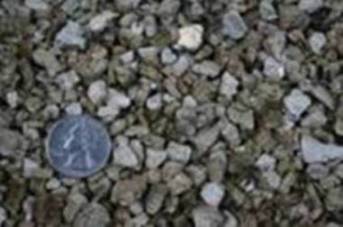Dec . 12, 2024 19:28 Back to list
industrial pipe insulation materials
The Importance of Industrial Pipe Insulation Materials
When it comes to maintaining energy efficiency and safety in industrial settings, the choice of pipe insulation materials is crucial. Insulation plays a significant role in minimizing heat loss or gain, reducing energy consumption, and preventing condensation. This article will explore the various types of industrial pipe insulation materials, their advantages, and considerations for selecting the appropriate type for specific applications.
Types of Industrial Pipe Insulation Materials
1. Fiberglass Insulation Fiberglass is one of the most widely used pipe insulation materials due to its excellent thermal resistance and versatility. It is composed of fine glass fibers that trap air, providing effective thermal insulation. Fiberglass insulation is non-combustible, resistant to moisture, and can withstand high temperatures, making it suitable for both hot and cold pipes in industrial settings. Its availability in different densities allows for flexibility in application, depending on the specific requirements of the pipe system.
2. Polyethylene Foam Polyethylene foam is a lightweight, closed-cell insulation material that offers a high level of thermal resistance. It is particularly effective for pipes that are prone to condensation because its closed-cell structure prevents moisture infiltration. Additionally, polyethylene foam is easy to install and is available in various thicknesses to meet diverse thermal insulation requirements. However, it is not suitable for high-temperature applications, which limits its use in certain industrial environments.
3. Mineral Wool (Rock Wool) Insulation Mineral wool insulation is made from natural or synthetic minerals and has excellent fire-resistance properties. It can withstand high temperatures and is often used in applications involving steam pipes or hot water systems. Mineral wool is also soundproofing, making it beneficial for noise-sensitive environments. Its ability to absorb moisture allows it to act as a barrier against condensation, though care must be taken to ensure the insulation remains dry to retain its insulating properties.
4. Rubber Insulation Rubber insulation, often referred to as elastomeric insulation, is another option for industrial pipe insulation. It is flexible, durable, and provides effective thermal insulation. Rubber insulation can handle temperature fluctuations and is resistant to moisture, making it suitable for chilled water pipes or HVAC systems. Its ease of installation and low thermal conductivity make it a favorite in various industrial applications.
industrial pipe insulation materials

5. Spray Foam Insulation Spray foam insulation is a modern solution that provides a seamless barrier against thermal transfer and moisture infiltration. This type of insulation can be applied directly to the surface of pipes in hard-to-reach areas. It expands upon application to fill gaps and crevices, providing a comprehensive insulation solution. Although it boasts high R-values and energy-saving potential, care must be taken to ensure proper application and curing.
Advantages of Pipe Insulation
The advantages of utilizing appropriate pipe insulation materials extend beyond energy efficiency. Insulation helps to prevent heat loss in hot water systems, thus reducing the need for excessive heating, which can lead to significant energy savings. In contrast, for cold water pipes, insulation helps to maintain optimal water temperatures, preventing condensation and the risk of water damage due to dripping.
Moreover, proper insulation can enhance equipment lifespan. By maintaining more consistent temperatures, insulation can reduce the thermal stresses that lead to mechanical failures in pipes. Insulation also plays a vital role in safety adequately insulated hot pipes lower the risk of burns, while insulated cold pipes reduce the chances of freezing and bursting in colder climates.
Selecting the Right Insulation Material
Choosing the right pipe insulation material involves assessing specific factors such as temperature requirements, humidity levels, and the nature of the materials being transported through the pipes. Environmental conditions, regulatory compliance, and installation considerations also play significant roles in decision-making. Consulting with an insulation specialist can provide valuable insights and help to ensure that the selected insulation meets the unique needs of the industrial application.
In conclusion, the choice of industrial pipe insulation materials is integral to enhancing energy efficiency, safety, and performance in industrial environments. An informed selection process, considering various insulation options and their respective benefits, is essential for optimal outcomes in insulation technology. By investing in high-quality pipe insulation, industries can achieve significant long-term savings and operational efficiency.
-
Eco-Friendly Granule Covering Agent | Dust & Caking Control
NewsAug.06,2025
-
Fe-C Composite Pellets for BOF: High-Efficiency & Cost-Saving
NewsAug.05,2025
-
Premium Tundish Covering Agents Exporters | High Purity
NewsAug.04,2025
-
Fe-C Composite Pellets for BOF | Efficient & Economical
NewsAug.03,2025
-
Top Tundish Covering Agent Exporters | Premium Quality Solutions
NewsAug.02,2025
-
First Bauxite Exporters | AI-Optimized Supply
NewsAug.01,2025
